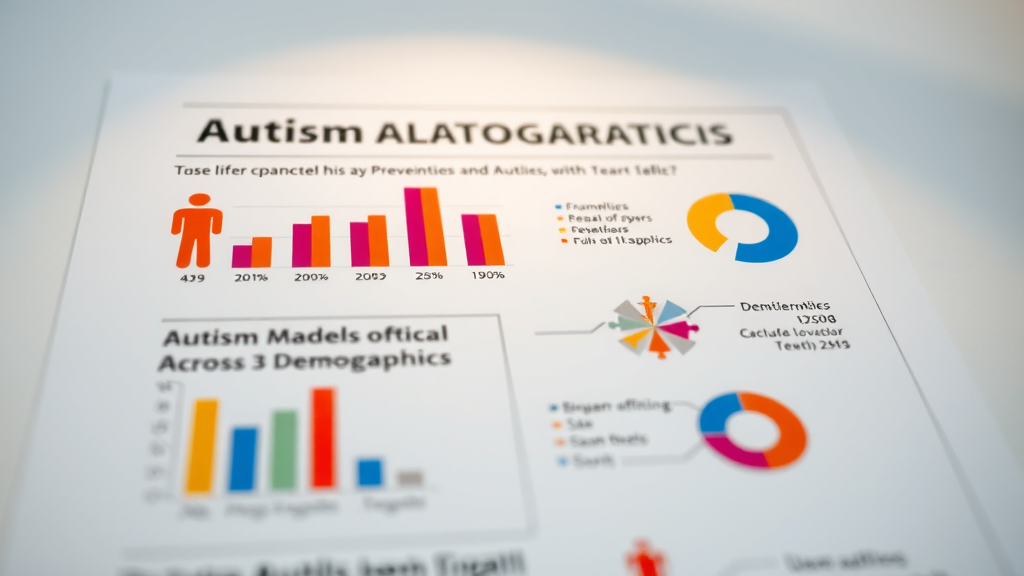In a world that often values conformity, understanding autism is not just beneficial—it’s essential. “Understanding Autism: Embracing Differences and Celebrating Unique Perspectives” invites you to explore the richness of diverse minds. By delving into the complexities of autism, we can break down barriers, foster empathy, and create inclusive spaces where everyone thrives. This journey not only enhances our understanding but also enriches our lives, as we learn to appreciate the unique perspectives that autism brings. Join us in celebrating these differences!
What is Autism?
Definition and Spectrum of Autism
Autism, clinically referred to as Autism Spectrum Disorder (ASD), is a complex neurodevelopmental disorder characterized by challenges in social communication, repetitive behaviors, and restricted interests. It is termed a “spectrum” because it encompasses a wide range of symptoms and severity levels.
Individuals with autism can exhibit unique strengths, such as extraordinary focus on specific interests or exceptional visual and auditory skills. Understanding the spectrum is crucial for recognizing the diverse experiences of those affected.
| Characteristic | Low Support Needs | High Support Needs |
|---|---|---|
| Social Interaction | May engage in social activities | Limited social interaction |
| Communication | May have advanced language skills | Often nonverbal or limited communication |
| Repetitive Behavior | Less likely to exhibit | More pronounced and frequent |
- Key Points:
- Autism affects individuals differently.
- Early diagnosis can lead to better support.
- Individuals may excel in specific areas.
“Every individual with autism is unique, and their experiences vary widely.”
Early Signs of Autism
Recognizing the early signs of autism is vital for prompt intervention and support. Common early signs include:
- Lack of Eye Contact: Children may avoid direct eye contact.
- Delayed Speech Development: Limited or absent verbal communication.
- Inconsistent Responses: Lack of response to their name.
- Repetitive Movements: Such as hand-flapping or rocking.

The Prevalence and Risk Factors of Autism
Understanding Autism Prevalence in the United States
The prevalence of autism has been increasing, with recent estimates suggesting that approximately 1 in 40 children is diagnosed with ASD in the United States. This rise is attributed to better awareness, improved diagnostic criteria, and increased access to services.
Risk Factors Associated with Autism
Numerous risk factors can contribute to the likelihood of developing autism, including:
- Genetic Factors: A family history of autism can increase risk.
- Environmental Influences: Prenatal exposure to certain chemicals or medications.
- Age of Parents: Older parental age may contribute to higher risks.
Genetic Factors and Environmental Influences
Research indicates that both genetic predispositions and environmental factors play significant roles in the development of autism. Understanding these factors can help in the identification and support of at-risk populations.

Diagnosis of Autism Spectrum Disorder (ASD)
Signs and Symptoms of Autism
Identifying autism symptoms can be complex, but common indicators include:
- Social Communication Deficits: Challenges in understanding social cues.
- Repetitive Behaviors: Engaging in the same actions repeatedly.
- Intense Focus on Interests: Deep engagement with specific topics.
Autism Diagnosis Process
The diagnosis of autism typically involves a comprehensive evaluation by professionals, including developmental history, observation, and standardized assessments.
Steps in the diagnosis include:
- Developmental Screening: Regular screenings during well-child visits.
- Comprehensive Evaluation: If concerns arise, a detailed assessment is conducted.
- Diagnosis: Based on DSM-5 criteria, professionals determine if a diagnosis is appropriate.

Living with Autism: Challenges and Supports
Social Communication Deficits
Individuals with autism often face challenges in social skills, such as initiating conversations, understanding nonverbal cues, and maintaining reciprocal interactions. These deficits can lead to social isolation.
Understanding Repetitive Behaviors
Repetitive behaviors are a hallmark of autism. They can manifest as:
- Stereotyped Movements: Such as hand-flapping.
- Rigid Routines: Difficulty adapting to changes in routine.
Support Services for Individuals with Autism
Support services are essential for enhancing the quality of life for autistic individuals. These may include:
- Behavioral Therapy: Applied Behavior Analysis (ABA) is commonly used.
- Social Skills Training: Focused on improving interpersonal skills.
- Occupational Therapy: Aimed at enhancing daily living skills.

Educational Approaches for Autistic Children
Special Education and Individualized Learning
Education for autistic children often requires tailored support. Individualized Education Programs (IEPs) are designed to meet the unique needs of each child, ensuring they receive appropriate resources.
Therapies and Interventions
Various therapies have proven beneficial for autistic children, including:
- Speech and Language Therapy: Enhancing communication skills.
- Occupational Therapy: Fostering independence in daily activities.
- Social Skills Groups: Encouraging interaction with peers.

Mental Health and Autism
Mental Health Issues in Autistic Individuals
Individuals with autism often face higher rates of mental health issues, including anxiety, depression, and attention-deficit/hyperactivity disorder (ADHD). Understanding these challenges is crucial for providing appropriate support.

Autism Community and Advocacy
Role of Autism Organizations
Organizations like Autism Speaks and the Autism Society play a vital role in advocacy, awareness, and providing resources for individuals and families affected by autism. They strive to foster acceptance and understanding within society.
Autism Acceptance and Awareness
Promoting autism acceptance involves recognizing and valuing the contributions of autistic individuals. Awareness campaigns emphasize the importance of inclusivity and support in various environments.

Research and Future Directions in Autism
Ongoing Autism Research
Research continues to explore the complexities of autism, including genetic, environmental, and neurological factors. This ongoing work aims to improve diagnostic methods and therapeutic interventions.
Future of Autism Support and Treatment
The future of autism support looks promising, with advancements in technology and tailored therapies. Continued advocacy will promote better resources and opportunities for individuals with autism.

Key Takeaways on Autism
Understanding the Full Spectrum of Autism
- Autism is a spectrum disorder with a wide range of symptoms and needs.
- Early intervention can significantly improve outcomes.
Importance of Early Intervention
- Recognizing early signs leads to timely support.
- Tailored educational approaches enhance learning.
Support for Autistic Individuals and Families
- Resources are available to assist individuals and families.
- Community involvement fosters understanding and acceptance.

Frequently Asked Questions (FAQs)
-
What are the early signs of autism?
- Early signs include lack of eye contact, delayed speech, and repetitive behaviors. -
How is autism diagnosed?
- Autism is diagnosed through developmental screenings and comprehensive evaluations by professionals. -
What support services are available for individuals with autism?
- Services include behavioral therapy, social skills training, and occupational therapy. -
What role do families play in supporting individuals with autism?
- Families provide essential love, understanding, and advocacy for their autistic members.
Conclusion
Understanding autism is essential for fostering an inclusive and accepting society. By focusing on the unique strengths and challenges of autistic individuals, we can create supportive environments that celebrate diversity.
Call to Action: Learn more about autism and how you can contribute to a more inclusive world by visiting [Learn More at https://hypersforsale.com/].
 Add Row
Add Row  Add
Add 




Write A Comment